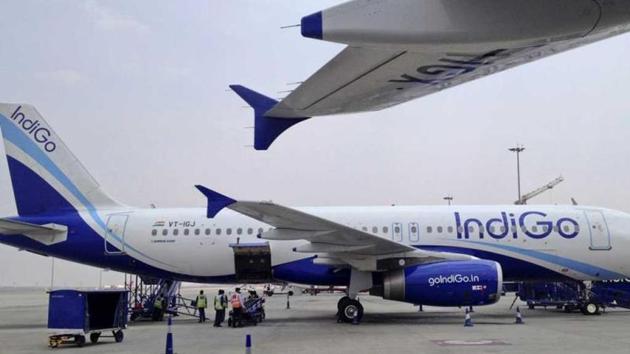‘Neo aircraft safe to fly’, says DGCA after emergency meet with IndiGo, Go Air
There have been 19 incidents of inflight shut down/mid-air turn back/rejected take off since 2017, nine of which happened this year, due to issues in the main gear box (MGB) and low pressure turbine (LPT) of Airbus Neo aircraft.
India’s civil aviation regulator on Wednesday asked Pratt and Whitney to ensure more availability of spare engines to prevent grounding of aircraft due to removal of engines after two budget carriers GoAir and IndiGo have been facing glitches in P&W engine that powers many of their Airbus Neo aircraft.

Following a series of incidents in the last two weeks, the Directorate General of Civil Aviation (DGCA) called an urgent meeting with IndiGo and Go Air to discuss the situation on Wednesday. The regulator emphasized that it is completely safe to fly these aircraft and manufacturers have been told to replace the faulty parts at the earliest and ruled out ground the aircraft.
“About 40 per cent of the domestic seat capacity of India is powered by Neo aircraft and therefore, any knee-jerk reaction to completely shut their operations will have serious consequences,” the DGCA said in a statement.
There have been 19 incidents of inflight shut down/mid-air turn back/rejected take off since 2017, nine of which happened this year, due to issues in the main gear box (MGB) and low pressure turbine (LPT) of Airbus Neo aircraft.
“The engine failure related to MGB is expected to be contained after software updates. Engine failures related to LPT blade damage are being addressed by providing new LPT 3rd stage blade. The fault being captured at an early and incipient stage before failure of engine and this has resulted in increased number of engine removal. Restriction on import of engines with un-modified MGB and LPT will result in early replacement of affected engines,” DGCA said.
Earlier this month, the DGCA has said that all new inductions of A320/321 Neo aircraft after August 2019 must be installed with modified MGB and new modified 3rd stage LPT blades.
“We have also told airlines that no engines from MROs (Maintenance repair and overhaul) shall be accepted unless installed with modified MGBs and new modified 3rd stage LPT blades, except those which are at final stages in shop or in transit. There has been restriction on acceptance of lease engines without modified LPT and MGB,” DGCA chief Arun Kumar said.
But the regulator’s statement certifying the Neo aircraft safe to fly has drawn flak.
“They (DGCA) are making a mockery, the decision shows they are only facilitator, not a regulator. They should have taken some action, you can’t have so many engine failures in short span of time,” said Mohan Ranganathan, aviation safety expert.
There have been at least five cases of engine snag in IndiGo A 320 Neo aircraft, of which two are back in service, two are still grounded while one is undergoing C check (biennial maintenance check) at the MRO facility in Hyderabad. Go Air has also reportedly grounded two aircraft.
“There were two instances - one was in Mumbai, which resulted in an air turn back. The other one was in Guwahati, which resulted in a reject take-off at low speed. Both these aircraft are withdrawn from services and undergoing engine replacement,” said an IndiGo spokesperson.
According to an official, IndiGo A320 Neo was grounded on August 19 at Guwahati after a reject take off due to engine stall accompanied by high vibration. Another plane was grounded on August 17 after the Mumbai-Ahmadabad flight did a midair turn-back after loud sound in the engine followed by stalling.
Between them, IndiGo and Go Air operate all 127 A320 Neo aircraft in India. IndiGo has 92 of the aircraft in its fleet while Go Air has 35. Globally, 436 Airbus A320 Neo aircraft are in operation.






